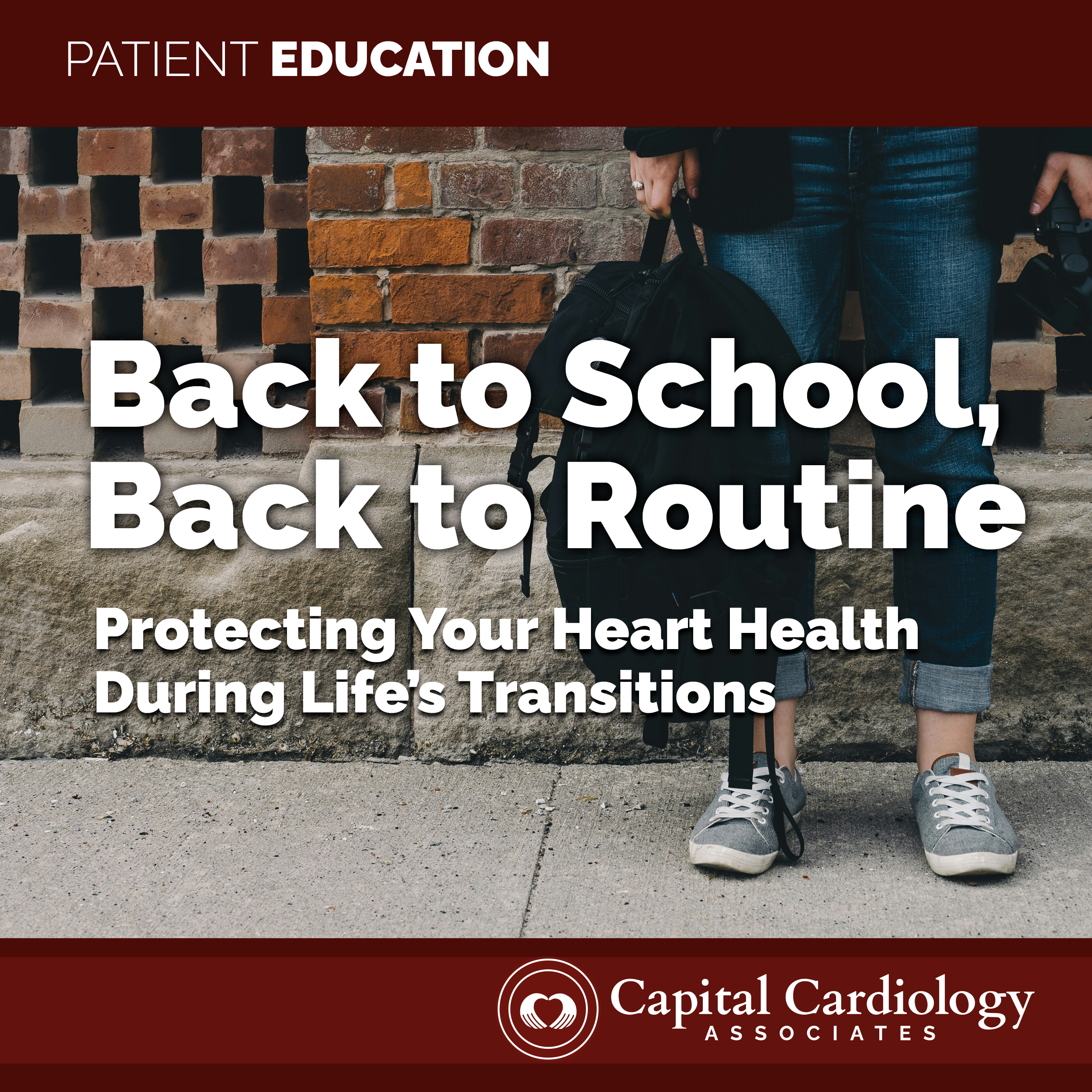Back to School, Back to Routine
Protecting Your Heart During Life’s Transitions
As August winds down, families across the Capital Region are shifting from the laid-back rhythm of summer into the structure of the school year. That change brings excitement and new opportunities, but it also introduces added stress, disrupted sleep, and tighter schedules. At Capital Cardiology Associates, we remind patients that these everyday transitions can affect heart health in meaningful ways.
Stress and the Heart
The start of the school year often means early alarms, busy mornings, and a calendar packed with activities. Between school drop-offs, after-school practices, and work deadlines, the pace can feel relentless. When the body perceives this constant demand, it responds by releasing stress hormones such as cortisol and adrenaline. These chemicals prepare us for action, but when they remain elevated day after day, they can raise blood pressure, increase heart rate, and disrupt normal blood vessel function. Over time, this places additional strain on the cardiovascular system, increasing the risk of hypertension and heart disease if stress is not managed in healthy ways.
Small adjustments can make a difference:
Take a 10-minute walk after dinner to reset your body and mind.
Practice mindful breathing when the day feels overwhelming.
Set aside screen-free time in the evening to relax with family.
Sleep: A Vital Reset
Summer often means late nights and flexible routines, but as fall approaches, consistency becomes key. Research shows that adults who regularly sleep less than 6 hours per night face higher risks of hypertension, irregular heart rhythms, and heart disease.
Establishing a bedtime routine, limiting caffeine in the afternoon, and powering down electronics before bed all help the body reset and prepare for restorative sleep.
Healthy Habits for Busy Days
Between school drop-offs, practices, and work commitments, it can be tempting to cut corners on nutrition or exercise. But maintaining healthy habits supports the heart through periods of stress. Quick strategies include:
Packing balanced snacks like fruit, nuts, or yogurt to avoid processed options on the go.
Choosing stairs or a short walk instead of skipping movement altogether.
Drinking water steadily throughout the day to prevent dehydration, which can worsen fatigue and dizziness.
The Season for Preventive Care
Late August is also a good time to schedule annual checkups and screenings. A blood pressure reading, cholesterol test, or an EKG can provide reassurance and detect issues early. For patients with known heart conditions, medication reviews ensure prescriptions align with new schedules or lifestyle changes.
Looking Ahead: Atrial Fibrillation Awareness Month
September marks Atrial Fibrillation Awareness Month, a reminder to learn the signs of AFib including an irregular heartbeat, fatigue, and shortness of breath. Detecting AFib early is one of the most effective ways to reduce the risk of stroke.
The Takeaway
The transition from summer freedom to school-year structure can be demanding, but it is also an opportunity. By prioritizing stress management, sleep, healthy habits, and preventive care, families can step into the new season with a strong heart and a clear mind.
At Capital Cardiology Associates, we are here to support every step of your journey from the first day of school to every season that follows.
Disclaimer: This article is for educational purposes only and is not a substitute for professional medical advice. Always consult your physician or qualified health provider with questions regarding your health or medical condition.

